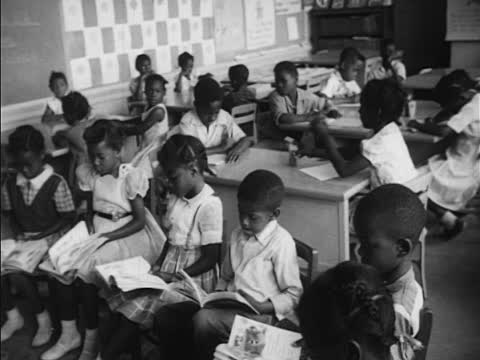“Back in My Day…”
Last night, I purposely took some time to sit and talk with my old man. After losing my mother earlier this year, it is the conversations with those dearest to me that matter the most. So on Friday night, I picked his brain as an ethnographer would but also with the grace of a son. I didn’t want answers per se, I just wanted to know. I wanted to learn – to learn his life, and to learn how he came to be the man that he has become. My father is a man of values – the type of man that is often forgotten in this age of social media and displaying selfies to an audience for one’s personal validation.
Last night, he spoke to me with poignancy and clarity. We talked about his schooling experiences and old school schooling. A few things stuck out from our conversation. One of the things he talked about was that in his schooling experience in Jamaica, he felt that there was “no competition” in class. I pushed him to explain his sentiment. He elaborated that in school “back home” everybody got along and “nobody cheated off of each other because you didn’t know if the person beside you was smarter than you or not.” “So why am I going to cheat?” he added. This got me thinking about how our current educational paradigm has produced a counter reality to this, and it also begged me to ponder, which way is better?
People “back in the day” weren’t preoccupied with a hierarchy of validation based on some materialistic vision of intelligence that today’s school espouses. Kids then were at school for two reasons: because they had to be and because they wanted to learn. Today, our educational system has systemically erased the former – students are practically forced to be in (traditional) school until the age of 16. But, is this good for education, or bad? I will adamantly confess that I have no answer. However, I do think that because of the mandatory nature of school, students implicitly find alternative ways to compete with peers. For urban black boys, this has resulted in devastating consequences.
Because schooling is in effect compulsory, competition is now fostered. Also because schooling is so generic, it almost becomes completely unengaging. Many on the educational foreground think this is a good thing. It’s the American dream – competition breeds success and it also cultivates excellence. They also argue that because all schools are the same, everyone gets an “equal” opportunity to succeed. But we often forget the insidious side of competition and the unfortunate side of conformity.
When students are pigeonholed into the same corridor of “academic” growth and validation, passive resistance to the unbalanced validation of excellence will arise. Despite what a lot of educators think, school produces counter cultures of validation that sprout in contrast to the traditional forms of academic excellence. All of our students are smart. But education has now equated academic competency with intelligence, and certain students either refuse to or are not equipped with the tools to play that game. I was one of the lucky ones; many of my brothers were not.
So what did they choose? They chose to resist school in all its forms. They resisted because alternative forms of respect within classrooms and hallways are present and perceptually more valuable than simply getting an A on a Math test. That is the unfortunate path that our progressive but generic education has led to.
Back in the day, students didn’t bother cheating off of each other, as my father said, because no one knew who was smarter. Now education carves clear and precise hierarchal paths of so-called excellence. The lessons that the old school educational system in other countries set forth needs to be adopted here. Perhaps the reason why no student knew who was smarter was because the educational space didn’t deviate from valuing ALL individuals. Education no longer does this.
This prose may come off as more cynicism than productive analysis of progressive education. But make no mistake, the driving point here is that our schools have chosen to dive head first into the shallow end before measuring the waters at bay. Some things from the past were crucial to empowering a generation of creative minds. Some aspects of that old school schooling inevitably led to the boom in creativity that has happened over the last 30 odd years.
So before we start from scratch and amputate our past, we need to revisit how education was done way back when and pick out positives that such a culture instilled. We should look to infuse traditional practices that worked with our current models of school. When we do this, we will not only engage a culture of students who are indelibly different but we will plant values that will lead to positive production and equal validity.
[share title=”Share this Post” facebook=”true” twitter=”true” google_plus=”true”]

